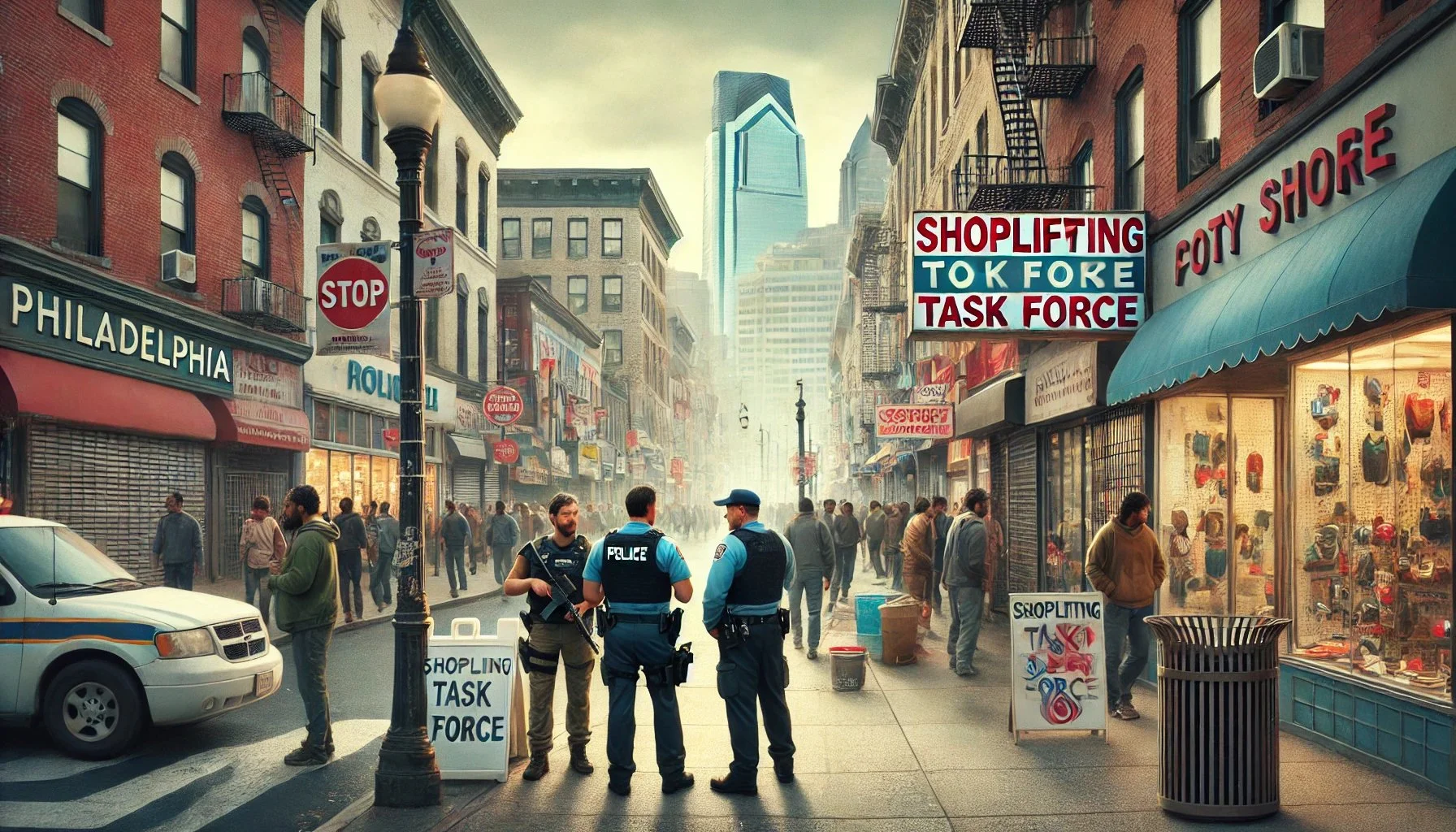Philadelphia shoplifting task force…
Background
Philadelphia has experienced a significant increase in shoplifting incidents, with nearly 17,000 cases reported in 2023 (as of December 5), marking a 19% increase from the previous year and an over 80% rise since 2021. This surge in retail theft has coincided with a controversial policy implemented by District Attorney Larry Krasner in 2018.
The Krasner Policy
Initial Approach
- Directed prosecutors to charge most thefts involving merchandise valued at less than $500 as summary offenses.
- Aimed to reduce pre-trial incarceration and expedite court dockets.
Impact
- Prosecution of retail theft cases dropped dramatically:
- 2011-2017: Over 2,100 cases annually
- 2018: 1,141 cases
- 2019-2023: Less than 500 cases per year
- Conviction rates fell:
- 2023: 61% of 435 charged cases were dismissed or withdrawn
- Only 31% resulted in guilty outcomes
Consequences and Criticism
1. Perception of decriminalization: Critics argue the policy inadvertently signaled that shoplifting was effectively decriminalized in Philadelphia.
2. Increased theft: Coincided with a significant uptick in retail theft across the city.
3. Public safety concerns: High-profile incidents, such as the fatal stabbing of a security guard at Macy's, intensified scrutiny.
4. Business impact: Local businesses faced increased losses and security challenges.
Policy Revision
In response to mounting criticism and rising theft rates, DA Krasner announced plans to revise the retail theft policy:
1. Removal of specific dollar amount thresholds for categorizing thefts.
2. Focus on combating organized retail crime and targeting prolific shoplifters.
3. Emphasis on addressing root causes, such as drug addiction, by offering treatment options.
4. Greater focus on prosecuting "fences" who buy and sell large quantities of stolen goods.
5. Possibility of more severe charges, including felonies, for prolific offenders.
Citywide Response
1. Mayor Cherelle Parker declared a "public safety emergency."
2. Police Commissioner Kevin Bethel tasked with developing a plan to reduce property crimes.
3. Launch of the Organized Retail and House Theft Task Force, comprising six prosecutors.
Challenges and Outlook
- Skepticism remains among critics who believe the previous policy created an environment that emboldened shoplifters.
- The effectiveness of the new policy in curbing retail theft trends is yet to be determined.
- Balancing public safety, justice, and offender rehabilitation remains a complex challenge.
Conclusion
Philadelphia's experience highlights the delicate balance between criminal justice reform and maintaining public safety. The city's evolving approach to retail theft demonstrates the need for adaptive policies that address both the symptoms and root causes of crime while maintaining a strong deterrent against illegal activities.

